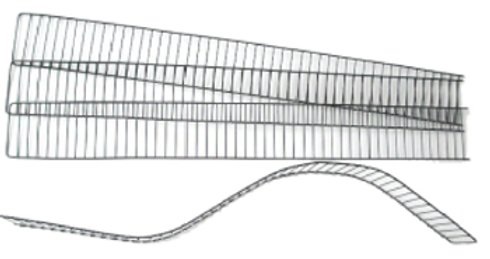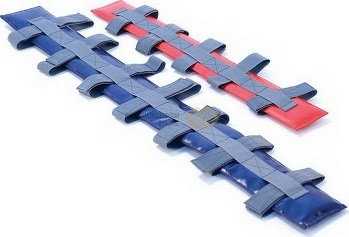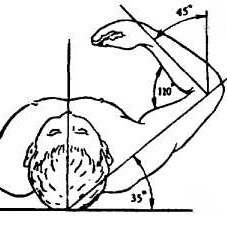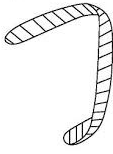Immobilization of a shoulder with a wire splint
Completion requirements
Authors: Simulation and Certification Center
Editor: Rednenko V.V.
Clinical situation:
- You are part of a rescue team that provides assistance to victims of an earthquake. Your group's equipment includes a first aid kit and a set of wire splints for immobilization.
- A casualty complains of sharp pain in the right shoulder and limited movement of his arm. Upon examination, there is a bruise at the site of pain. He is conscious and asks you for help and takes him to the hospital's trauma center. Site of accident is save.
- Immobilize his arm with a wire splint.
Equipment for the practical skill:
- simulator;
- set of wire splints (wire splint 120 cm long)
- pads (bandage rolls)

- or a wire splint with fixing belts and soft lining

The procedure for performing a practical skill:
- Make sure the scene is safe.
- Introduce yourself.
- Identify the person.
- Obtain informed consent to the procedure:
- give all the information to the person about what the procedure involves, including the benefits and risks, whether there are reasonable alternative, and what will happen without this procedure;
- explain what you are going to do;
- ask the patient to consent to procedure.
- Identify a type of the injury:
- examine the person from head to toe;
- verify the injury;
- choose a way to immobilization.
- Call for help: ask a team member to assist you in providing first aid.
- Take a 120 cm long splint from the set.
- Prepare this splint:
- place pads on the splint and fix them with a bandage (the splint is usually prepared for work in advance)
- or take the commercial wire splint with soft lining.

- Model the splint:


-
- place the splint along the patient's healthy arm from the fingertips to shoulder joint;
- put marks on the splint at the levels of elbow and shoulder joints;

-
- bend splint at a right angle (90°) at the level of the elbow joint;

-
- bend the splint at an obtuse angle (115°) at the level of the shoulder joint .

- Take a comfortable position for this manipulation.
- Ask the assistant to gently slightly lift the injured arm, keeping it in a physiological position.
- Place the splint gently under the injured arm.
- Give the physiological position of the hand, inserting in it a bandage roll.


- Fix the splint to the arm with bandages or special straps.

- Hang the splint with slings or triangular bandage or special straps.

- Check the quality of immobilization.
- Ask the patient about the comfort of the arm position, the presence of discomfort in the immobilized area (pressure on the protruding parts of joints and bones). If necessary, put soft pads under these protruding parts.
Pr
Last modified: Wednesday, 4 June 2025, 9:35 AM